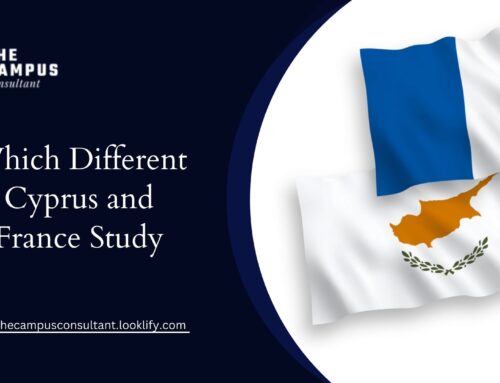Introduction
Cyprus, with its rich history, vibrant culture, and stunning landscapes, has become a coveted destination for international students seeking top-notch education. However, before embarking on this exciting journey, it’s crucial to understand the living expenses you’ll encounter. In this comprehensive guide, we’ll delve into the various aspects of living costs in Cyprus for international students. Living expenses in Cyprus for international students vary depending on the city and lifestyle. On average, monthly expenses including accommodation, food, transportation, and miscellaneous items range from €600 to €900. Rent for a one-bedroom apartment in urban areas could cost between €300 to €500 per month. Groceries may amount to €150 to €250 monthly, while transportation costs, including buses or trams, average around €50 to €80. Additional expenses like utilities, internet, and leisure activities should also be considered. Budgeting and seeking affordable options can help manage expenses effectively during the stay in Cyprus as an international student.
Accommodation Costs
In Cyprus, options range from university dormitories to private apartments. On-campus housing typically offers convenience but may come at a premium price. Alternatively, students can opt for private rentals, which offer more flexibility in terms of location and amenities. The average monthly rent for a one-bedroom apartment in cities like Nicosia or Limassol ranges from €400 to €600, depending on the location and facilities. Accommodation costs for international students in Cyprus can vary based on factors such as location, type of housing, and amenities. On average, renting a one-bedroom apartment in urban areas like Nicosia, Limassol, or Larnaca may range from €300 to €500 per month. Shared accommodations or student dormitories could offer more affordable options, typically ranging from €200 to €400 monthly. Utilities such as electricity, water, heating, and internet may incur additional expenses, averaging around €100 to €150 per month. It’s advisable for students to explore different housing options and consider their budget constraints when planning for accommodation in Cyprus.
Utilities and Bills
Apart from rent, international students need to budget for utilities such as electricity, water, heating, and internet services. While some rental agreements may include certain utilities, it’s essential to clarify these details beforehand. On average, monthly utility expenses for a small apartment in Cyprus amount to €100 to €150. Utilities and bills for international students in Cyprus typically include electricity, water, heating, internet, and possibly gas if applicable. The monthly cost of utilities can vary depending on factors such as usage, location, and the size of the accommodation. On average, students can expect to pay around €100 to €150 per month for utilities, including electricity and water. Internet services may cost an additional €20 to €30 per month, depending on the chosen plan and provider. It’s important for students to budget for these expenses alongside their accommodation costs to ensure they can manage their finances effectively while studying in Cyprus.
Transportation Expenses
Navigating Cyprus is relatively easy, thanks to its well-connected public transportation system. International students can utilize buses to commute between cities and towns. The cost of a single bus ticket varies but typically ranges from €1.50 to €2.50. For students who prefer the flexibility of owning a vehicle, expenses such as fuel, insurance, and maintenance should be factored into their budget. Transportation expenses for international students in Cyprus depend on the mode of transportation and frequency of travel. Many students opt for public transportation, such as buses or trams, which offer affordable options for getting around. Monthly passes for public transportation typically range from €40 to €60, depending on the city and type of pass. Alternatively, students may choose to use bicycles, which can be a cost-effective and environmentally friendly means of transportation. Owning a car is another option, but it comes with additional expenses such as fuel, insurance, and maintenance. Overall, students can expect to allocate around €50 to €80 per month for transportation expenses in Cyprus.
Food and Groceries
Cyprus boasts a diverse culinary scene, with an abundance of fresh produce and local delicacies. International students can choose between dining out at restaurants or preparing meals at home. On average, a basic grocery shopping for essentials like fruits, vegetables, grains, and dairy products may cost around €200 to €300 per month. Dining at restaurants occasionally can add an additional expense of €10 to €20 per meal. Food and groceries are essential expenses for international students in Cyprus. The monthly cost can vary based on dietary preferences, shopping habits, and cooking frequency. On average, students can expect to spend between €150 to €250 on food and groceries per month. This budget allows for purchasing essential items such as fruits, vegetables, grains, dairy products, and protein sources. Cooking meals at home can be more economical than eating out, although occasional dining at restaurants or cafes may be included in the budget. Shopping at local markets or supermarkets can help students stretch their budget further while ensuring they have nutritious meals throughout the month.
Healthcare Costs
Healthcare in Cyprus is of high quality, with both public and private healthcare facilities available. EU/EEA students can access healthcare services through the European Health Insurance Card (EHIC). However, non-EU/EEA students may need to purchase private health insurance, which can cost approximately €300 to €600 per year, depending on coverage. Healthcare costs for international students in Cyprus vary depending on individual circumstances and insurance coverage. Cyprus has both public and private healthcare systems. EU/EEA students may have access to the public healthcare system through the European Health Insurance Card (EHIC) or the European Health Insurance Plan (EHIC+), which covers emergency and necessary medical treatment. However, non-EU/EEA students typically need private health insurance, which can cost around €150 to €300 per year. This insurance covers medical expenses, consultations, and treatments. Additionally, students should budget for out-of-pocket expenses like medication and dental care, which can vary depending on the type of treatment needed.
Miscellaneous Expenses
Beyond the essentials, international students should budget for miscellaneous expenses such as books, study materials, entertainment, and personal care items. These costs can vary depending on individual preferences and lifestyle choices. Setting aside an additional €100 to €200 per month for miscellaneous expenses is advisable.
- Personal items: Toiletries, clothing, and other personal care products.
- Academic materials: Books, stationery, and other supplies required for studies.
- Leisure and entertainment: Dining out, movies, concerts, and other recreational activities.
- Communication: Mobile phone plans, internet subscriptions, and other communication services.
- Travel: Expenses related to weekend trips, sightseeing, or visiting other cities.
- Health and wellness: Gym memberships, sports activities, and occasional medical expenses.
- Socializing: Expenses for social events, clubs, and memberships.
Summary
While pursuing higher education in Cyprus is undoubtedly an enriching experience, it’s essential for international students to plan and budget for their living expenses effectively. By understanding the various cost factors, from accommodation to healthcare, students can enjoy a fulfilling academic journey in this beautiful Mediterranean island nation.







[…] Contact us today Previous […]